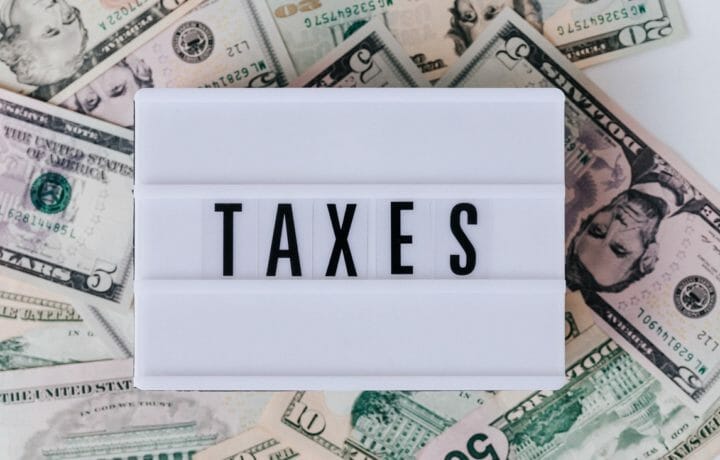It’s that time of year again—the tax deadline is nearing and those who have been avoiding their filings may be starting to sweat. It’s also the time when it’s helpful to address some common tax-related questions that clearance holders ask (or later learn that they should have asked).
As a security clearance lawyer, I can provide information regarding how tax-related issues can impact an individual’s eligibility for a clearance or a sensitive position, but I am not a tax lawyer and nothing in this article is tax advice. Anyone with questions regarding their taxes should consult with a tax professional.
“If the future of the IRS is uncertain, do I really need to file my taxes?”
This is an easy one and, frankly, surprising. But, if I’ve heard it multiple times, the odds are, you may have, too. The answer, of course, is YES.
This question comes up in the context of speculation about President Trump’s plan for the IRS and taxes in general, but the key here is speculation. Clearance holders (and hopefuls) should follow all current requirements for filing and paying taxes. For anyone still tempted to count on their barber’s friend’s cousin’s prediction that the IRS is on its way out, their best bet is to 1) request an extension, 2) make sure the request is timely and approved and 3) be prepared to file by the extended deadline.
“I just learned that I owe taxes and I can’t afford to pay them, what should I do?”
If you owe taxes, one important factor that the government will look at is whether you have made arrangements to pay the debt and are in compliance with those arrangements. This does not require a lump sum payment in full. For many folks, this may mean establishing a payment plan with the IRS. But, if the calculated debt is incorrect or you were unaware of a spouse’s tax error, you may have alternative routes for challenging the debt or requesting other relief. A tax professional (i.e., not me) can best advise as to which options may be available. Then, a security clearance lawyer can advise on how those options may impact your clearance eligibility. Either way, it is important to take action promptly.
“I hate doing my taxes—can’t my spouse just do them for me?”
Yes and no. It’s not uncommon for one spouse to be “in charge” of taxes, especially when the couple files jointly. It is important, however, that each taxpayer reviews and agrees with the information prepared on their behalf before approving submission. When it comes to your clearance, ignorance of a missed filing or overdue tax debt will not, alone, resolve an agency’s concerns. Moreover, the worst of these cases involve a filing spouse who caused the couple to jointly owe significant back taxes but made no arrangement to pay, and the non-filing spouse was none-the-wiser.
“Don’t I have three years to file if I’m owed a refund?”
When it comes to your clearance, no. This misunderstanding usually stems from the IRS’s “three-year rule” for receiving a refund from the federal government (in “most cases”), but the deadline to receive a refund does not change the IRS’s deadline for timely filing. Clearance holders are expected to file their taxes on time. While late filing will not always lead to a clearance denial, the government will consider the entirety of the circumstances, and long-time clearance holders have lost their clearance eligibility due, in part, to reliance on this false “three year” presumption.
“What do my taxes have to do with my clearance eligibility?”
Every once in a while, I speak with someone who is not only in hot water but incredulous that the government considers their tax history when making an eligibility determination.
The reality is that the government’s interest isn’t about taxes, really. Compliance with tax obligations is, as with every factor in the adjudicative process, one measure of an applicant’s good judgment, trustworthiness, and reliability. As one Administrative Judge aptly put it,
“[A] clearance adjudication is not directed at collecting debts. . . . By the same token, neither is it directed toward inducing an applicant to file tax returns. Rather, it is a proceeding aimed at evaluating an applicant’s judgment and reliability. A person who fails repeatedly to fulfill his or her legal obligations does not demonstrate the high degree of good judgment and reliability required of those granted access to classified information.
The Bottom Line
When it comes to difficulties with taxes, it is common to want to ignore the problem. But failing to file or pay taxes can have consequences for one’s clearance. For those who have already missed a deadline or owe more taxes than they can pay, take a deep breath, review the relevant mitigating factors (paragraph 20 of the Adjudicative Guidelines), talk to a professional (or two), and make a plan. Then, adhere to the plan and keep detailed documentation at every step.
If you still feel like you don’t know where to start or you’ve already received requests for additional information or a Statement of Reasons from your agency, consider speaking with a clearance lawyer. Although every case is different, one thing is always true: it’s better late than never.
The above content is not legal advice and does not create an attorney-client relationship. The handling and outcome of any legal matter depends on varying factors unique to each matter, and results cannot be predicted or guaranteed. Do not act upon information without seeking legal counsel.




